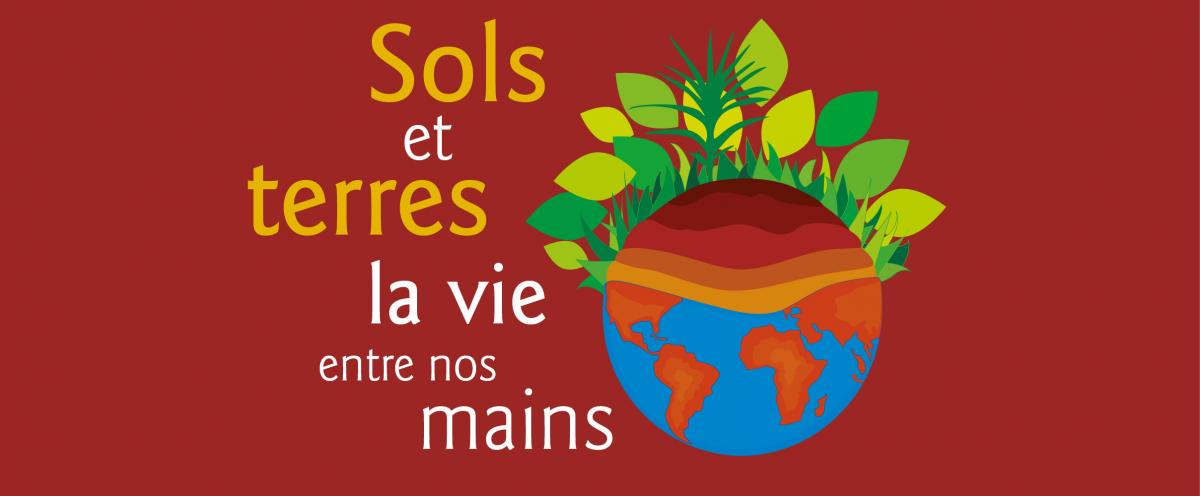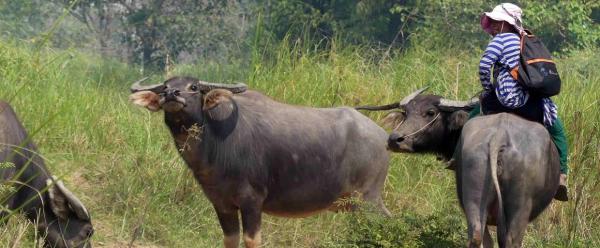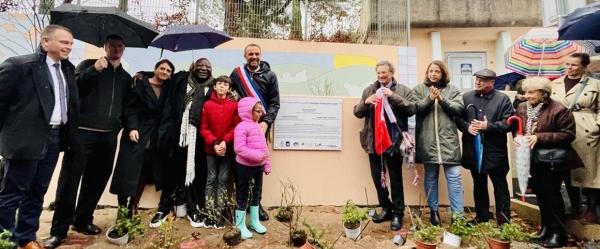- Home
- Press area
- Press releases
- 2024 Paris International Agricultural Show soils CIRAD AFD
2024 Paris International Agricultural Show: AFD and CIRAD put soils centre stage

© D. Guard-Lavastre, CIRAD
Soils are like historic monuments: an ancient construction that should be conserved and passed on in good condition (according to a book, Collection des métaphores du sol). While it takes several centuries for a few centimetres of soil to form, that soil can very rapidly be destroyed...
It often takes at least 10 000 years to build a metre-deep soil. According to Yves Coquet and Alain Ruellan, on a human scale, soils should at least be seen as a non-renewable resource, if not as a heritage that should be maintained and protected.
Soils represent less than 30% of the Earth's land surface, a third of which is given over to agriculture (33% to crops and 67% to livestock). They contain a quarter of the planet's biodiversity, render vital services, notably agricultural production, and help to regulate the climate by capturing carbon. However, soils face huge threats. Every year, almost 200 000 km² of soils are lost due to erosion, compaction, pollution, salinization, or artificialization as a result of urban spread. FAO estimates that unless we do something, the entirety of our arable land could be degraded by 2050.
Preventing soil degradation and managing its fertility is vitally important for food sovereignty.
Preventing soil degradation and managing its fertility is crucial to boost agricultural production in a sustainable way and be able to satisfy growing demand for food while preserving forests and natural areas.
As the International Decade of Soils draws to a close this year, AFD and CIRAD's joint stand at the Paris International Agricultural Show will highlight soils, by addressing five questions:
1. How do soils, one of the pillars of agricultural production, function?
2. How can we conserve the multi-functionality of soils, their biodiversity and the ecosystem services they render?
3. How can we protect soils against erosion and contaminants?
4. What types of good agricultural practice could be used to manage soils in an agroecological way, and boost their fertility?
5. How can we fight land grabbing and unequal access to land?
The week will be punctuated by several events, on the topics of soil use and land tenure inequalities, the highlight being a conference on Tuesday 27 February, on soil fertility and the question of whether fertilizer use is compatible with agroecology with regard to improving food sovereignty in Africa (see box)).
The stand will also present a range of projects and initiatives (TERRI4SOL, RAMSES II, ASSET, CTFD – Comité technique « Foncier et développement », 4 per 1000 initiative) and a unique infrastructure looking at the environmental impact of organic waste products in the sugarcane plantations of Réunion: SOERE-PRO.
The other must-sees include a vivarium with a buried scanner to allow the public to discover live macro-organisms, and activities presenting the key role of soils.
Catch up with us from 24 February to 3 March 2024 at the Porte de Versailles Exhibition Centre, Paris, on the CIRAD-AFD stand, hall 4, aisle D-144.
The population in sub-Saharan Africa is set to double by 2050, which will push up demand for food. If nothing is done to improve the productivity of the continent's agricultural land, that demand can be satisfied, but at the cost of deforesting, to access new land. Although 80% of the food consumed in Africa comes from African markets, agricultural yields on the continent are low. This is partly due to its largely unfertile soils, with very limited mineral stock available to plants. In addition to that very poor intrinsic fertility, certain agricultural practices have impoverished African soils, making them very unproductive, since they contain much less organic matter and minerals than when they were first planted.
The conference will look at a crucial question: are agroecological approaches founded on recycling minerals via a range of types of organic matter and on using legumes enough in their own right to boost long-term annual crop productivity in Africa, without the additional minerals provided by mineral fertilizers?
See the programme for the conference (accessible only to those registered) ,contact for journalists: presse@cirad.fr



























